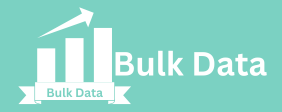Discover how Artificial Intelligence can redefine factory automation, connecting the physical world to the digital and transforming the interaction between autonomous factories and online sales platforms.
The symbiosis between Artificial Intelligence (AI) and physical process automation is happening now and changing the way factories operate, from inventory management to autonomous operations. However, the impact of AI is not limited to the factory floor.
Integration with e-commerce is creating a more interconnected and efficient ecosystem where autonomous factories collaborate seamlessly with online sales platforms. This dynamic interaction will be fueled by the Internet of Things (IoT) and blockchain, connecting the physical and digital worlds in innovative ways.
Intelligent Automation in Factories and IOT The Power
Autonomous factories are overseas data becoming a tangible concept, thanks to AI. According to a recent survey by IBGE ; 84.9% of medium and large-scale industries used advanced technology in 2022. From automating repetitive tasks to controlling robots and machines, AI and other technologies optimize operational efficiency, reduce human error, and increase productivity. AI also plays a key role in inventory management.
Using predictive algorithms based on sales history, seasonal data, and market demand, factories can anticipate production needs and minimize waste.
It is also possible to produce parts that were ordered today or adjust sizes and customize products based on orders.
E-commerce Integration
The real revolution do you know the ecommerce law? get all your questions answered here will happen when AI in autonomous factories connects to e-commerce. Online consumer demand is fast-paced and changing, and AI is key to meeting these changes effectively. For example, when a product is purchased online, AI can optimize the production process in the factory, adjusting the assembly line, programming robots, and ensuring that the item is produced and shipped efficiently. Product picking and packing with automation, robotics, and AI is already a reality.
We’re seeing this in practice with Amazon increasingly deploying robots to manage inventory and sort products.
Internet of Things (IoT) as a Connector
IoT plays an important role in aero leads this interplay between autonomous factories and e-commerce. Sensors and connected devices collect and share data in real time, providing information for decision-making. For example, inventory sensors can automatically inform the factory when an item is low in stock, activating production without the need for human intervention. They are also used to check the quality of manufactured products or the quantities and weight of food.
Blockchain as security and enabler The Power
Imagine that the logic of paying when you receive from Mercado Livre could be applied to all other marketplaces. After confirming receipt, you could test and, even under the Consumer Protection Code (CDC), return the product from an online purchase. Blockchain could be a tool to simplify the process. One click and you release the payment for the item you purchased. This would also prevent scams from malicious websites.
